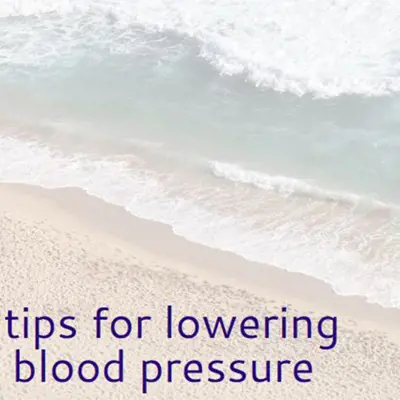
Five tips for lowering your blood pressure
May 19, 2017
High blood pressure (hypertension) is known as a silent killer, because it can damage heart vessels and cause health issues without having symptoms. It's very important to know your blood pressure, so have it checked and then work with a health care provider to develop a plan based on your numbers, family history and other health risks. Here are five tips to lower your blood pressure:
- Choose Wisely: Make sure your diet is full of fresh fruits and vegetables, whole grains, lean meats and limited fats. Read the food labels and pay close attention to serving sizes. If you do most of your grocery shopping on the outer aisles of the store, and limit what you buy in the middle, your cart will be full of healthier choices. Go ahead and try it!
- Watch Your Salt: The American Heart Association recommends no more than 2,300 mg of sodium a day, or one teaspoon of salt. This means you need to limit the salt shaker, but also watch for hidden sodium in processed foods, such as microwaveable meals, lunch meats and canned soups. Try seasoning your food with various spices and herbs instead.
- Get Physical: Moderate exercise 30 to 40 minutes on most days of the week lowers your blood pressure, helps maintain weight, and is a great stress reliever. Find something you enjoy, such as walking, exercising in a group, riding your bike, dancing…..just get going.
- Limit Your Spirits: Too much alcohol can raise your blood pressure. If you drink, limit yourself to no more than two drinks a day if you are a man, and no more than one drink a day if you are a woman. The following is what is meant by a "drink": one 12 oz. beer, 4 oz. of wine, 1.5 oz. of 80-proof spirits or 1 oz. of 100-proof spirits.
- Shed a few pounds: Losing 5-10 pounds if you are overweight can lower your blood pressure. So, incorporating tip 1 (choose wisely) and tip 3 (get physical) can help you maintain a healthy balance and keep your blood pressure in check.
The American Heart Association has great tools and resources to help you manage your blood pressure.